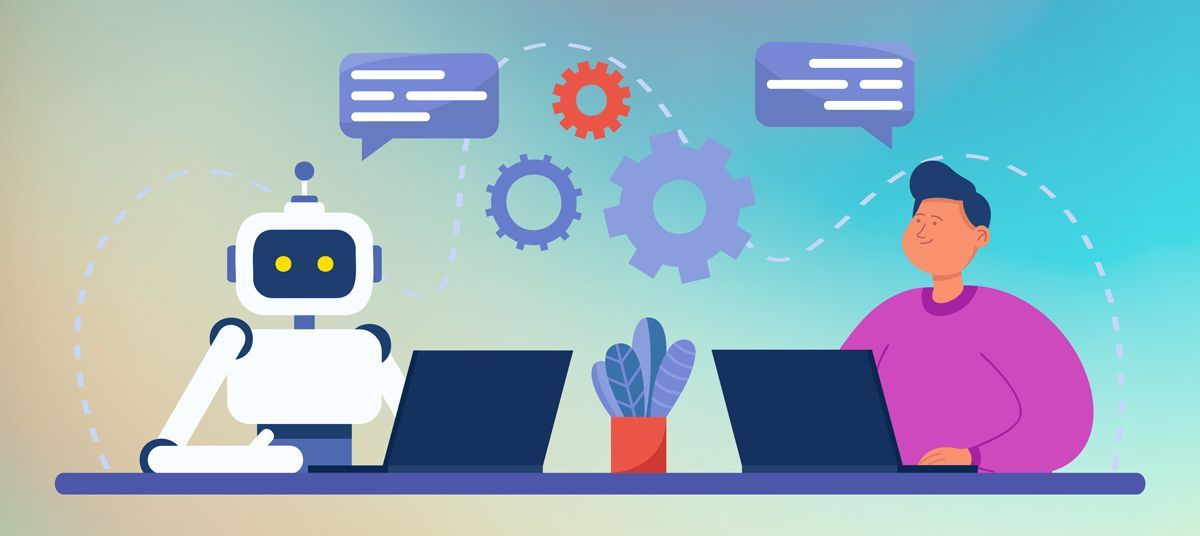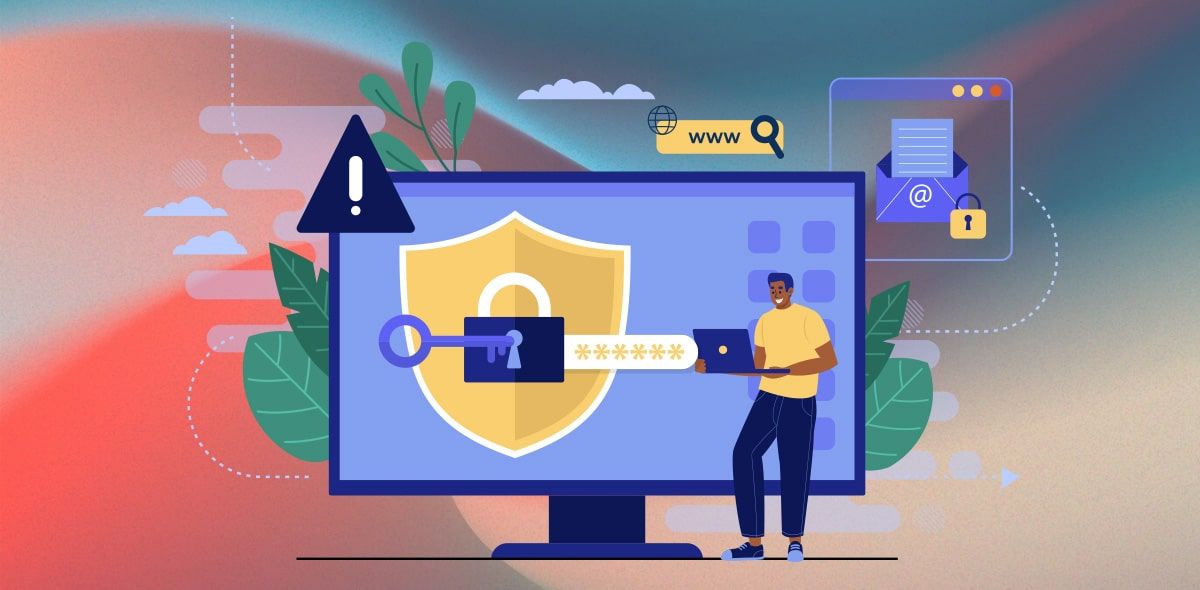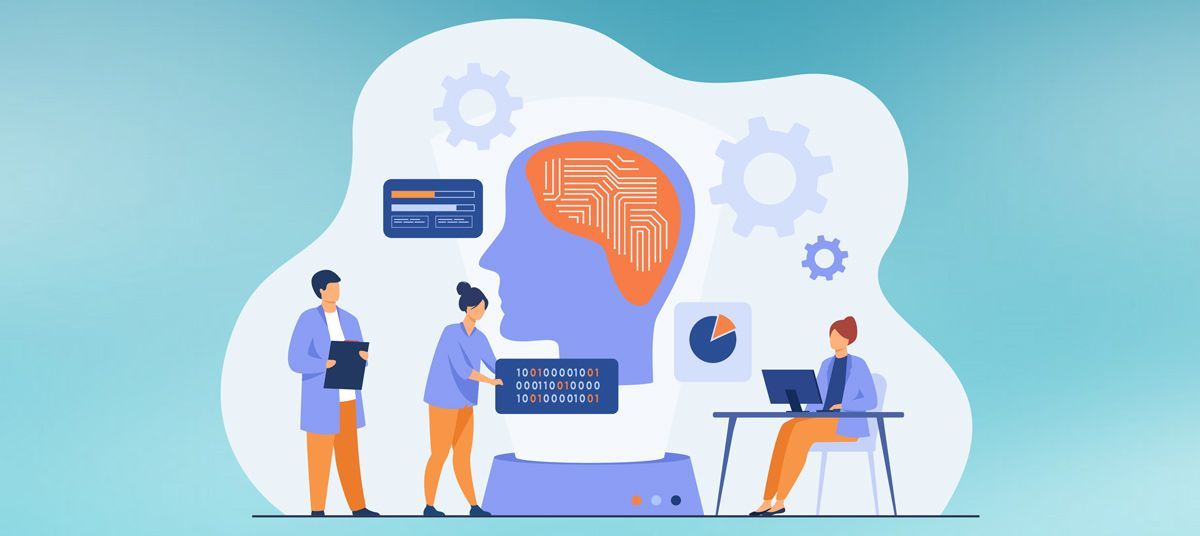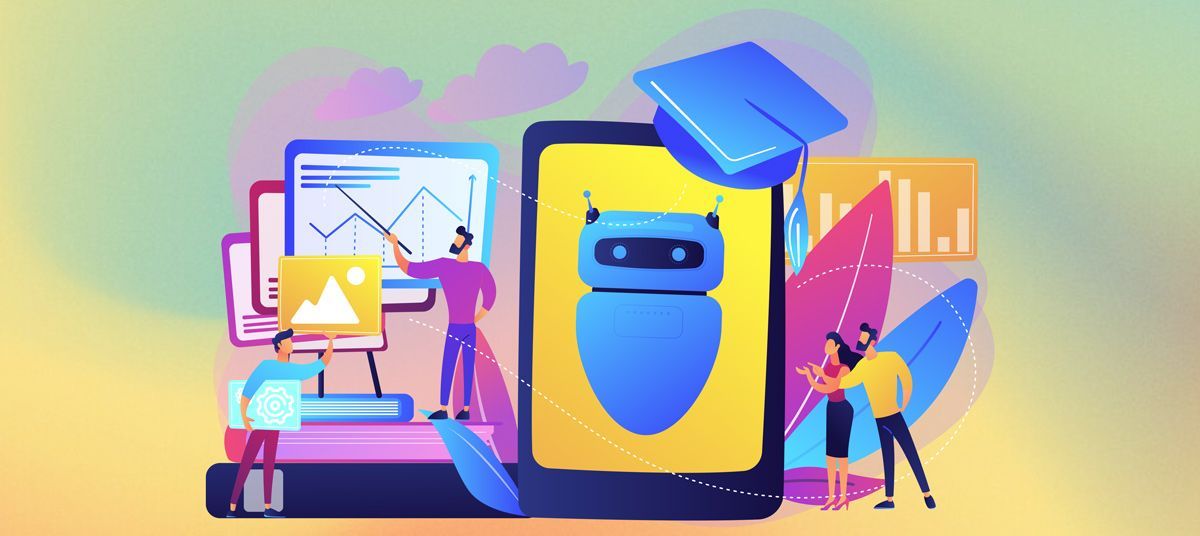Insights Blog
Where we share our expertise on AI, web development, analytics, and all things digital. As a leading company in the industry, we strive to provide the latest insights, tips, and best practices to help businesses like yours succeed online.

By Len Ward
•
30 May, 2024
Embracing the AI Revolution Hello and welcome to our new blog series, Business on the Brink: The Frontline of AI . I’m Len Ward, founder of Commexis, and I’m thrilled to guide you through the rapidly evolving landscape of AI and Large Language Models (LLMs) and their profound implications for business owners. This blog is not just a reading experience; it’s an interactive guide designed to help you understand, adapt, and thrive in this new era. Subscribe to receive weekly updates directly in your inbox and stay ahead of the curve. From Wall Street to Digital Marketing: A Personal Perspective Let me take you back to the beginning of my career on Wall Street, where I witnessed the seismic shifts brought about by the dot-com boom. Businesses transformed overnight, embracing the internet as a fundamental part of their operations. I was fortunate to be at the forefront of this revolution, seeing firsthand how digital connectivity reshaped industries. After Wall Street, I dove into the world of e-commerce, founding a startup and witnessing the emergence of Google Ads and SEO. These tools became game-changers, offering businesses unprecedented ways to reach their audiences. As the founder of a digital ad agency, I then saw the rise of social media, which redefined how brands connect with consumers. Yet, in all my years navigating these transformative waves, nothing compares to the disruptive potential of AI and LLMs. The pace and scale of change are unlike anything we’ve seen before, and businesses must adapt swiftly to stay competitive. The Imperative of Understanding AI Now AI and LLMs are set to revolutionize internal business processes, putting a voice on your data and enabling you to make real-time decisions like never before. Imagine having AI systems that can instantly analyze vast amounts of data and provide actionable insights at your fingertips. This capability allows for immediate, informed decision-making, giving your business a significant competitive edge. However, having access to this wealth of information is only half the battle. The true challenge lies in effectively using this data to make strategic decisions. It’s crucial to develop the skills and mindset needed to interpret AI-driven insights and implement them in ways that enhance your business operations. By mastering this, you can ensure that your business not only survives but thrives in the AI-driven future. The Next 18 Months: What to Expect The next 18 months will be pivotal as AI continues to evolve at a breathtaking pace. Here’s a blunt look at what’s coming: Next 3-6 Months: Expect significant disruption in customer service and support roles. AI-driven chatbots and virtual assistants will become standard, potentially reducing the need for human employees in these areas. 6-12 Months: AI will begin to dominate content creation, with advanced tools generating high-quality marketing materials, blogs, and social media posts. Businesses that fail to adopt these tools risk falling behind as competitors leverage AI for faster, more efficient content production. 12-18 Months: Prepare for AI to take over more complex business processes. AI agents will not only create content but also manage entire marketing campaigns, analyze vast datasets, and optimize strategies in real-time. This could jeopardize jobs traditionally held by human employees and fundamentally change how businesses operate. Business disruption isn’t a distant threat; it’s imminent. Companies that hesitate to integrate AI into their operations will find themselves at a significant disadvantage. It’s essential to stay informed and be proactive in adopting AI technologies. This blog will serve as your guide, providing insights, strategies, and updates to keep you on track. We will explore the latest developments, share success stories, and offer practical advice on how to leverage AI for your business. The Role of AI in Marketing As we move into an AI-first world, the role of marketers will transform. AI can handle many of the tasks traditionally done by human marketers, from market research to content creation and campaign management. However, the human touch remains crucial. Marketers will become managers of AI systems, guiding, optimizing, and ensuring that AI outputs align with the brand’s vision and goals. Conclusion: Join Us on This Journey We’re at the brink of a new era. The AI revolution is not a distant future; it’s here, and it’s reshaping the business landscape. Subscribe to Business on the Brink: The Frontline of AI to stay informed and empowered. Together, we’ll navigate these changes and ensure your business not only survives but thrives in the age of AI.

By Len Ward
•
29 May, 2024
In the rapidly evolving landscape of technology, the integration of Artificial Intelligence (AI) is not a distant future but a present reality that businesses must embrace. As we stand on the cusp of this AI revolution, it is critical for companies to understand and integrate AI into their operations. The industries that adapt swiftly will not only survive but thrive in this new era. The Role of IT and Marketing in AI Transformation The first instinct might be to turn to IT departments to lead the charge in AI transformation. While IT's role is undoubtedly critical, I believe that experienced marketers, particularly those skilled in SEO and strategy, are equally, if not more, essential in this transition. Here's why: Data Handling and Prompt Engineering: Marketers are adept at understanding how to extract and leverage data quickly. They have the expertise to communicate with search engines and understand the nuances of data-driven decision-making. This skill set is directly transferable to training AI models and leveraging AI for market insights and campaign optimization. Content Creation and Strategy: AI's potential in content creation is immense. Marketers who excel in content strategy will find themselves at the forefront of utilizing AI to generate and refine content. The AI co-pilot can assist in creating a content calendar, generating creative ideas, and even producing content, allowing marketers to focus on strategic decisions. SEO and AI Training: Marketers experienced in SEO are uniquely positioned to teach AI systems. They understand the importance of keywords, search intent, and content optimization. These skills are crucial in training AI to understand and predict consumer behavior, improving the efficiency and effectiveness of marketing campaigns. The Future of Marketing with AI As AI continues to evolve from co-pilots to fully autonomous agents, the impact on the marketing industry will be profound. AI co-pilots can already assist in planning and executing campaigns, analyzing data, and providing strategic insights. However, the arrival of AI agents capable of performing end-to-end marketing tasks poses both opportunities and challenges. Opportunities Enhanced Efficiency: AI can automate routine tasks, allowing marketers to focus on high-level strategy and creative work. This shift can lead to significant productivity gains and cost savings. Personalized Marketing: AI can analyze vast amounts of data to create highly personalized marketing experiences, improving customer engagement and conversion rates. Innovative Campaigns: With AI's ability to generate and test creative ideas quickly, marketers can experiment with innovative campaigns and adapt in real-time based on performance data. Challenges Job Displacement: The rise of AI agents may lead to a reduction in the need for traditional marketing roles. However, this does not mean the end of marketing jobs but rather a transformation of the skill sets required. Marketers will need to evolve to become proficient in AI tools and strategies. Relevance of Agencies: As AI takes on more marketing tasks, agencies will need to redefine their value propositions. Those that can integrate AI into their offerings and focus on strategic consulting will continue to find relevance. The Imperative for Action Businesses must act now to integrate AI into their operations. Waiting is not an option. The competitive landscape is shifting, and early adopters of AI will have a significant advantage. Here are steps to get started: Educate Your Team: Invest in training your marketing and IT teams on AI technologies and their applications. Understanding how to leverage AI effectively is crucial. Start Small: Implement AI tools for specific tasks such as data analysis, content generation, or customer segmentation. Use these initial projects to build confidence and expertise. Collaborate Across Departments: Encourage collaboration between IT and marketing teams to develop integrated AI strategies that leverage the strengths of both departments. Focus on Strategic Use of AI: Identify areas where AI can provide the most value to your business. This could be in enhancing customer experiences, optimizing operations, or driving innovation. Conclusion The AI revolution is here, and businesses must embrace it or risk being left behind. Marketers, with their data-driven approach and strategic insights, are poised to lead this transformation. By understanding and integrating AI, businesses can unlock new opportunities, drive efficiency, and stay ahead in an increasingly competitive market. Now is the time to act, experiment, and learn. The future belongs to those who are ready to harness the power of AI.

08 May, 2024
Introduction to AI: Unraveling the Basics Artificial Intelligence, or AI, may seem like a concept straight out of science fiction, but it's already a pivotal part of our daily lives and the business world. Simply put, AI is the ability of a computer system to perform tasks that typically require human intelligence. This includes understanding natural language, recognizing patterns, making decisions, and even predicting future trends. The Genesis of AI: A Brief History The journey of AI began in the mid-20th century when the pioneers of computing, like Alan Turing, asked whether machines could think. Turing's 1950 paper, "Computing Machinery and Intelligence," proposed what is now known as the Turing Test, a method to determine if a machine can exhibit intelligent behavior indistinguishable from a human. This idea laid the groundwork for AI. In the 1956 Dartmouth Conference, the term "Artificial Intelligence" was officially coined, setting the stage for decades of research and development. Early AI research focused on problem-solving and symbolic methods. By the 1980s and 1990s, machine learning became prominent, enabling computers to adapt and learn from data. How AI Works: Understanding the Mechanisms At the core of AI is machine learning (ML), where algorithms use statistical methods to improve over time. These algorithms are trained using large amounts of data to make predictions or decisions without being explicitly programmed to perform the task. Deep learning, a subset of ML, uses structures inspired by the human brain called artificial neural networks. This approach is particularly powerful and is behind many of the recent advancements in AI, including speech recognition, image processing, and autonomous driving. AI in Business: More Than Just Chatbots While AI technologies like ChatGPT, a conversational agent, are becoming more mainstream, AI's application in business goes far beyond chatbots. AI is revolutionizing industries by enhancing customer experience, optimizing operations, and providing insights through data analysis. Customer Experience: AI can personalize interactions based on user behavior, improving engagement and satisfaction. Operational Efficiency: AI algorithms can predict maintenance needs, manage inventory, and automate routine tasks. Data Analysis: AI helps businesses make informed decisions by identifying patterns and insights in vast amounts of data. The Future Impact of AI on Business The future of AI in business looks promising and transformative. AI is expected to drive innovation across all sectors by automating complex processes, enhancing decision-making, and creating new products and services. Here are a few predictions: Automation of Knowledge Work: AI could automate complex cognitive tasks, potentially reshaping professions like law, medicine, and finance. Enhanced Decision Making: With advanced predictive analytics, businesses can foresee market trends and consumer needs with unprecedented accuracy. New Business Models: AI will enable the creation of new markets and services, such as AI-driven health diagnostics or personalized education platforms. Conclusion: Embracing AI as a Business Owner For business owners unfamiliar with AI, the prospect of integrating this technology may seem daunting. However, understanding AI's fundamentals and its potential applications can be the first step toward leveraging its capabilities to enhance your business operations and strategies. As AI continues to evolve, staying informed and adaptable will be key to thriving in the ever-changing business landscape.

By Commexis
•
27 Feb, 2024
As digital threats become more sophisticated, it’s imperative for businesses to adopt advanced strategies to prevent website hacking and ensure data security. This 2024 guide delves into the technical aspects of website security, offering insights and strategies to help businesses fortify their online defenses. The Critical Importance of Data Security Data is the lifeblood of the digital world, and its security is paramount for any online business. A breach can lead to severe consequences, including legal issues, financial losses, and irreparable damage to a company’s reputation. In today’s environment, a robust approach to data security isn’t just advisable; it’s essential. Proactive Hacking Prevention Strategies Preventing website hacking requires a proactive and layered approach. Key strategies include: Regular vulnerability scanning to identify and address potential security gaps. Employing intrusion detection systems to monitor for suspicious activities. Implementing strict access controls and authentication protocols, such as two-factor authentication, to limit access to sensitive data. Secure Web Hosting: A Foundation for Safety Choosing a secure web hosting service is a critical decision in safeguarding your website. Look for providers that offer robust security features, such as automated backups, malware scanning, and DDoS protection. Reliable hosting isn’t just about uptime; it’s about ensuring that your site’s foundation is secure against threats. Cultivating a Culture of Security Security is as much about people as it is about technology. Creating a culture of security within your organization is vital. Regular training sessions on security best practices, phishing awareness, and safe internet usage can significantly reduce the risk of breaches caused by human error. Encourage a mindset where security is everyone’s responsibility. In the ever-evolving landscape of cyber threats, staying ahead requires a comprehensive and proactive approach to website security. By implementing advanced strategies, choosing secure hosting solutions, and fostering a culture of security awareness, businesses can protect themselves against the increasing threat of website hacking. Remember, in the realm of cybersecurity, complacency is the enemy; vigilance and continuous improvement are your allies.

20 Feb, 2024
In an era where digital presence is integral to business success, website security has become more important than ever. As we move through 2024, the sophistication of website hacking techniques continues to grow, posing significant threats to online businesses. This blog post aims to navigate you through these threats and outline the best practices for maintaining robust website security. Understanding Website Hacking: Website hacking involves unauthorized access to or manipulation of websites, often leading to data breaches, service disruptions, or other harmful consequences. Common types of attacks include SQL injection, cross-site scripting, and DDoS attacks. The impact of such attacks can be devastating, ranging from loss of sensitive data to severe reputational damage. The Evolving Landscape of Online Threats: Cyber threats are constantly evolving, with hackers continually finding new ways to exploit vulnerabilities. In 2024, we see an increase in targeted ransomware attacks, sophisticated phishing schemes, and exploitation of IoT devices. Staying informed about these threats is the first step in defending against them. Best Practices for Website Security To protect your website, start with the basics: Regularly update all software, including your CMS, plugins, and themes. Use strong, unique passwords and change them periodically. Implement SSL encryption to secure data transmission. Regularly back up your website to prevent data loss in case of an attack. Advanced Security Measures For enhanced protection, consider the following advanced measures: Use a web application firewall (WAF) to monitor and filter incoming traffic. Conduct regular security audits to identify and fix vulnerabilities. Educate your team about cybersecurity best practices to prevent human errors. Consider hiring cybersecurity professionals for continuous monitoring and threat detection. Navigating website hacking threats requires a proactive approach to security. By understanding the risks, staying informed about the latest threats, and implementing both basic and advanced security measures, you can significantly reduce the likelihood of a successful attack. Remember, website security is an ongoing process that demands vigilance and adaptation to new challenges.

Step Into the Future & Pioneer Your AI Journey with Commexis.
Overview
Contact Info
© 2024
All Rights Reserved | Commexis | Privacy Policy




